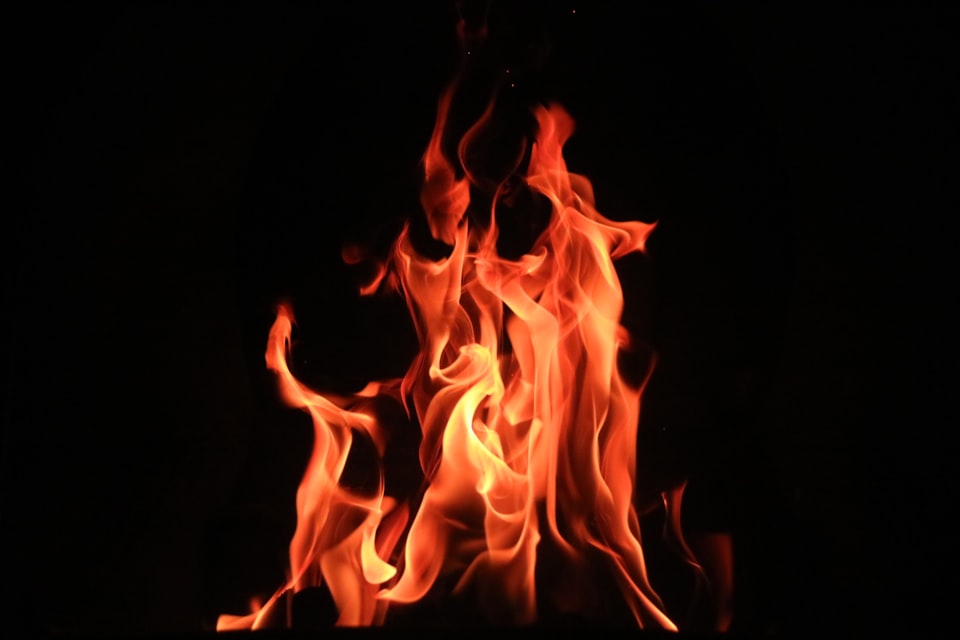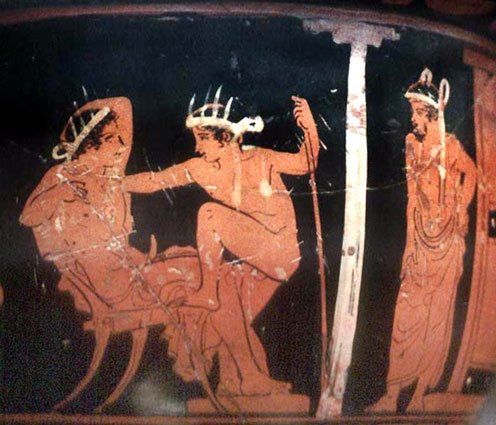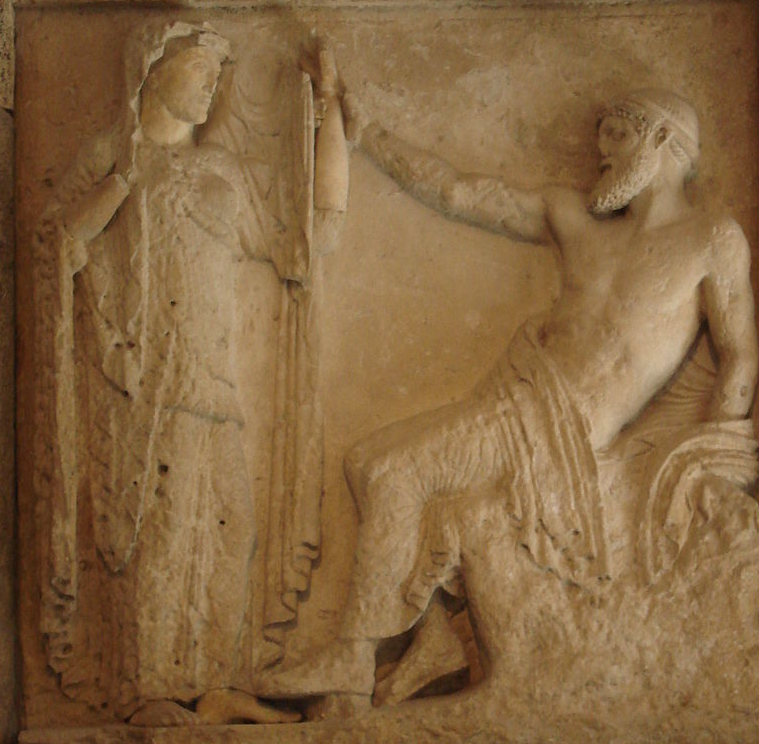Mythology Monday: Gods of Fire

This week's #MythologyMonday theme is fire and there are two major Greek gods associated with fire: Hestia, goddess of the hearth, and Hephaistos, god of smiths.
They represent fire in two different forms: the sacrificial flame of the hearth as the sacred centre of domestic life and the flame of Hephaistos, source of all arts, and fuel of the funeral pyre. But both could be invoked for the cooking of sacrificial meat or a good meal:
"For without you [Hestia] mortals hold no banquet."
Homeric Hymn 24 to Hestia
"Swine with the fat abundant upon them were singed and stretched out across the flame of Hephaistos."
Homer, Iliad 9. 467
As the hearth of a house is at the same time the altar on which sacrifices are offered to the domestic gods, Hestia presides over all sacrifices, and, as the goddess of the sacred fire of the altar, she gets a share of every sacrifice to the gods made at home or in their temples.
Hestia also presided over the central hearth of a state, the fire kept alight in the civic hall as a public hearth in every town. City officials would sacrifice at the public hearth on entering upon their office, and there, as at a private hearth, Hestia protected the suppliants.
When a new colony was founded, the emigrants took the fire which was to burn on the hearth of their new home from the public hearth of their mother town.
Hearth fires were always kept burning. If one became extinct, it was seen as a bad omen for the household.
If it did go out, only sacred fire produced by friction, or by bronze burning mirrors drawing fire from the sun, might be used to rekindle it.
A ritual from Lemnos, the cult centre of Hephaistos, has all fires on Lemnos extinguished for nine days until new fire is brought from the island of Delos:
And the island of Lemnos is purified every year for the deed once done to the men on Lemnos by their wives at Aphrodite's instigation. The fire on Lemnos is extinguished for nine days. A sacred ship from Delos, however, carries the fire, and if it arrives before the offerings for the dead, it puts in nowhere on Lemnos, but rides at anchor off the headlands out at sea until sailing into the harbor is permitted by divine law. For then, while invoking chthonian and ineffable gods, they keep pure, I think, the fire that is out on the sea. Whenever the sacred ship sails in and they distribute the fire both to its new abode and to the forges of the artisans, from that source is the beginning of new life.
Heroikos (On Heroes) by Lucius Flavius Philostratus, 213–214 CE
No fire meant a disruption of all normal life for nine days: no regular meals like bread or porridge, no incense to burn for the gods, the hearth and thus the centre of every community and household is dead - until new life arrives from the sea.
Hephaistos, it is said, loves Lemnos "more than any place on earth". According to the Illiad, it was on Lemnos where Hephaistos landed after being thrown from Olympos by his father Zeus and it is on Lemnos where he has his forge. Fire occasionally blazed forth from Mosychlos, one of its mountains.
In both ancient Greek and Latin "Hephaistos' breath" is a poetic way to say fire and often the god's name was used as a synonym for the element. Even iron, "hardest of all things", is softened by fire and melts through the strength of Hephaistos.
The myth of his fall from Olympos can also be read as an allegory:
Hephaistos (fire) arrives on Lemnos from the sky, as it would through a burning mirror. He is weak, within an inch of his life, but the people of Lemnos care for him and kindle the weak little flame until it grows strong enough to craft the most beautiful things.
Most of us have to stay home at Hestia's hearth for now. I hope to provide some much needed edutainment and I am forever grateful for your continued support of my work.
If you enjoyed this read and are looking for more, you can find all my non-fiction articles and erotic mythology fiction in this overview post.
Stay safe, everyone 💖
Links
Lucius Flavius Philostratus on wikipedia.org
Jason, Hypsipyle, and New Fire at Lemnos a Study in Myth and Ritual by Walter Burkert



